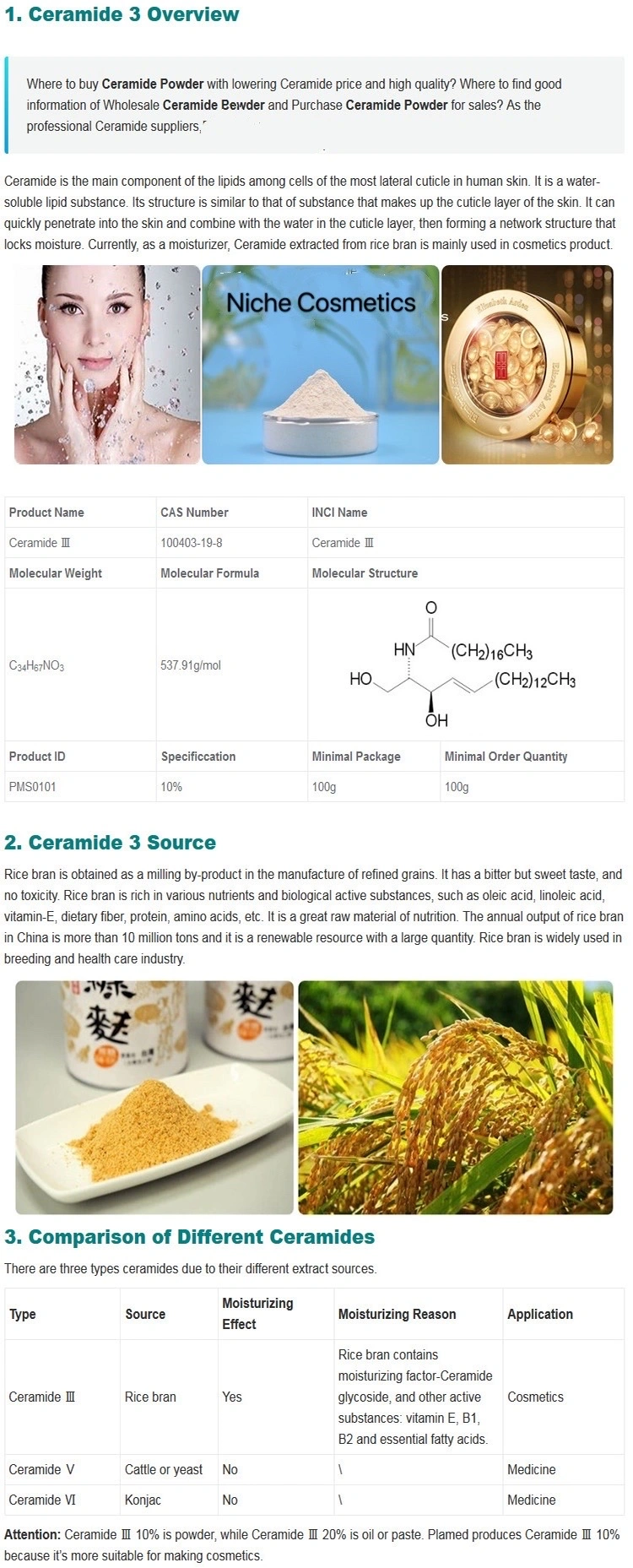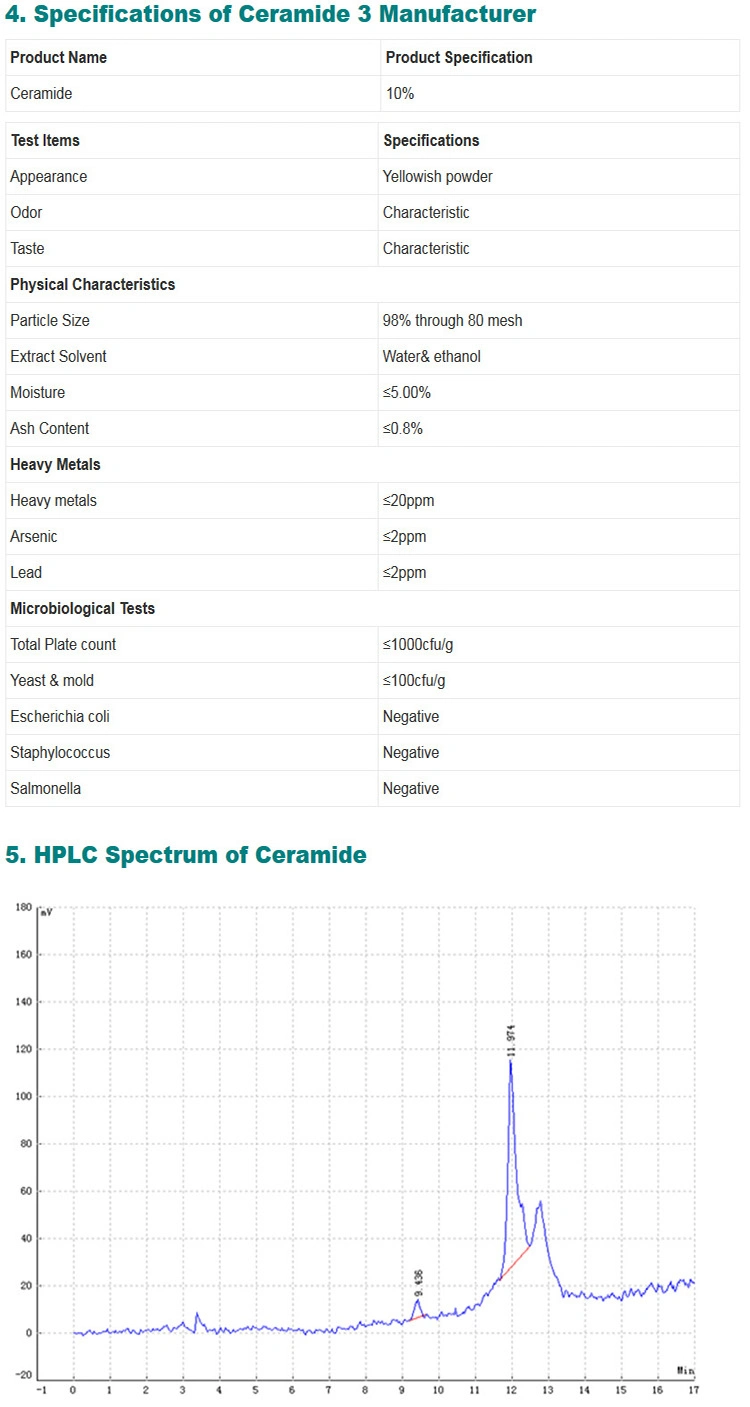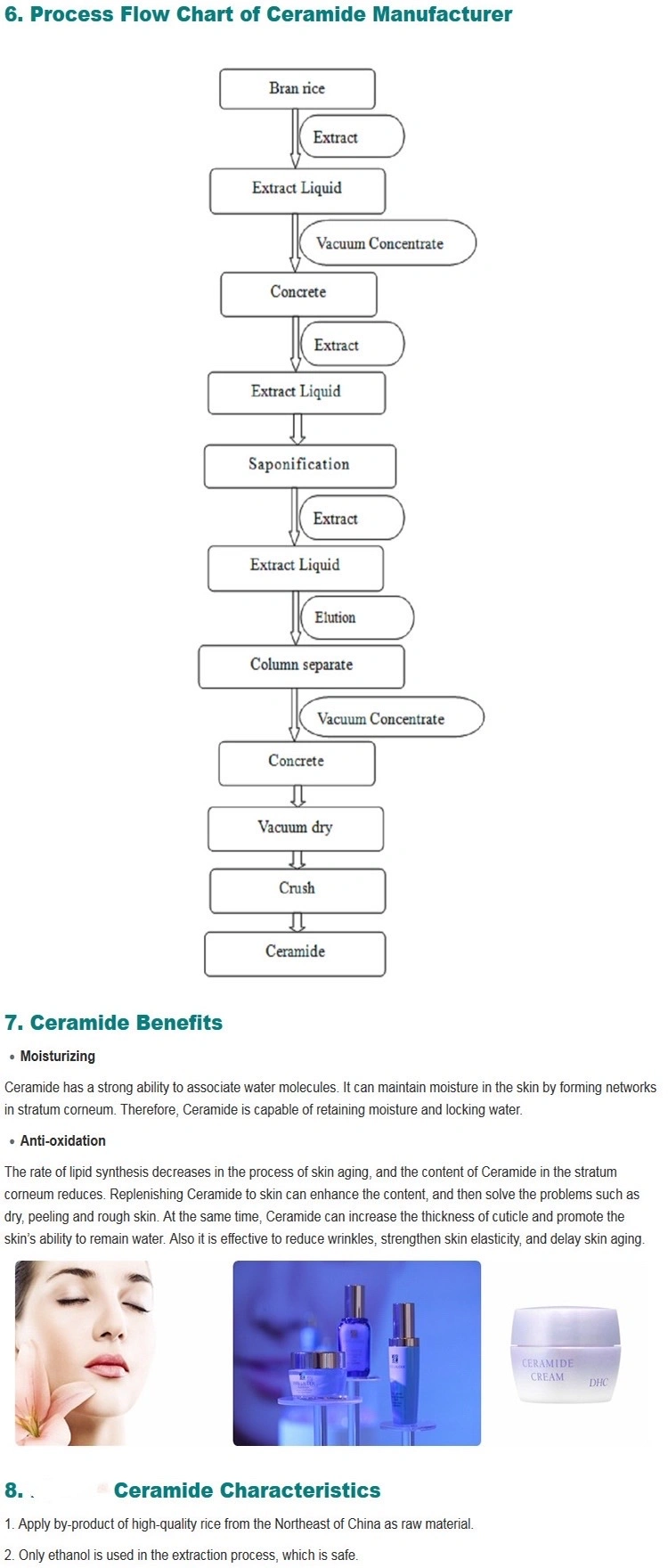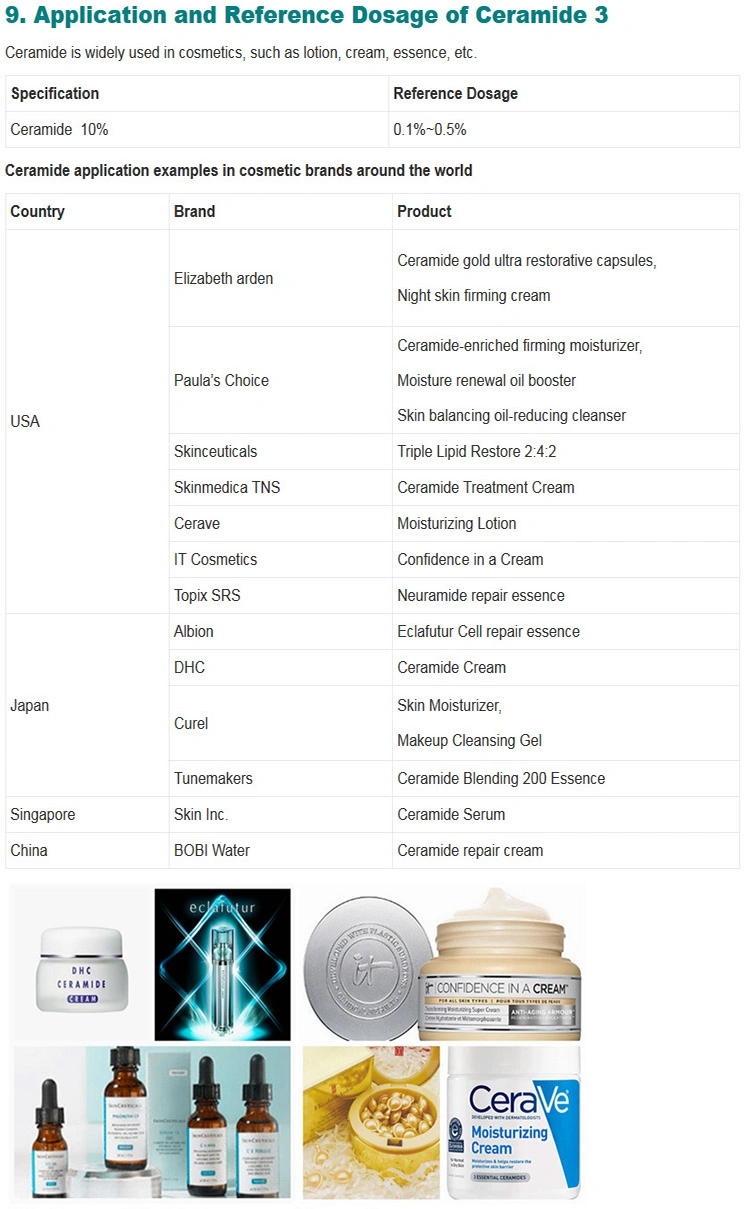
Category

Water-Soluble Natural Skincare Cosmetic Ingredient for Moisturizer Ceramide CAS 100403-19-8
Overview Water-Soluble Natural SkinCare Cosmetic Ingredient For Moisturizer Ceramide CAS 100403-19-8 Product Description
Basic Info
| Model NO. | Ceramide |
| Store Method | Normal Temperature |
| Cosmetics Approval No. | 187683648 |
| Product Name | Ceramide |
| CAS No. | 100403-19-8 |
| Properties | Moisturizing, Anti-Aging |
| Molecular Formula | C34h67no3 |
| Molecular Weight | 537.91g/Mol |
| Shelf Life | 2 Years |
| Typical Use Level | 0.2 %to 5.0% |
| Transport Package | 1kg 10kg 25kg |
| Specification | 1kg 10kg 25kg |
| Trademark | Niche |
| Origin | China |
| HS Code | 2930909099 |
| Production Capacity | 10000kg/Month |
Product Description
Water-Soluble Natural SkinCare Cosmetic Ingredient For Moisturizer Ceramide CAS 100403-19-8
Product DescriptionDetailed Product Information
Product Name:Ceramide
CAS No.: 100403-19-8
Molecular formula:C34H67NO3
Molecular weight: 537.91g/mol
specification: 1%, 5%, 30%
Origin:Wheat Germ
Appearance: Off-white to light yellowish
Properties: Moisturizing ,Anti-Aging
Typical use level : 0.2 %to 5.0%
Shelf Life :2 years
Application:CeraVe,Elizabeth Arden,SkinCeuticals
Description:
What are ceramides?
Simply put, ceramides are lipids (fats) that are found naturally in high concentrations in the uppermost layers of skin. They make up over 50% of skin's composition, so it's no surprise they play a vital role in determining how your skin looks (and how it responds to environmental threats).
What do ceramides do?
Think of ceramides as the mortar between bricks-if the bricks are your skin cells. Ceramides help hold skin together by forming a protective layer that limits moisture loss and protects against visible damage from pollution and other environmental stressors. In addition, ceramides-even more than retinol, niacinamide, and peptides-are one of the anti-aging "powerhouses" responsible for supporting skin's dynamic nature. Two particular ceramide precursors-phytosphingosine and sphingolipids-actually help skin make more ceramides.




Ceramide application
- Daily chemicals
- Applied in medicine
Ceramide plays an important messenger role in inducing biological effects of various cytokines, vitamin D3, Fas and CD28 ligands, and its role in mediating cell apoptosis has attracted attention; at the same time, ceramide is also involved in various physiological and biological effects such as cell differentiation. Pathological process. During the culture of epidermal keratinocytes, ceramide can induce apoptosis. Ceramide is a decomposition product of sphingomyelin in the bilayer of biological membranes, and is recognized as a second messenger; and in the process of cell growth, proliferation, differentiation, apoptosis and injury, ceramide plays a wide range and important role.
Related Products| Application | Product Name | Specification |
| Skin-whitening | Arbutin | Alpha 99.5% |
| Beta 99.0% | ||
| Tetrahydrocurcumin | 98% | |
| Phloretin | 98% | |
| Ellagic Acid | 90% | |
| Glabridin | 20% | |
| 40% | ||
| 90% | ||
| 98% | ||
| 10% Water-soluble Glabridin | ||
| Kojic Acid Dipalmitate | 99% | |
| Alpha Tocopherol | 1000IU | |
| Puerarin | 98% | |
| Luteolin | 98% | |
| Grape Seed Extract | 95% OPC | |
| Moisturizing | Ceramide | 10% |
| Squalene | 99% | |
| Sodium Hyaluronate | ≤0.6x106, 0.6x106~1.4 x106,≥1.4 x106 | |
| Sunscreen | Lutein | 75% |
| Rutin | 95% | |
| Ferulic Acid | 99% | |
| Quercetin | 98% | |
| Apigenin | 98% |








